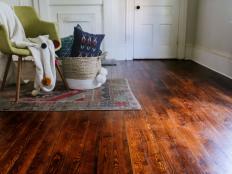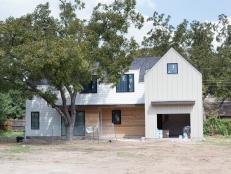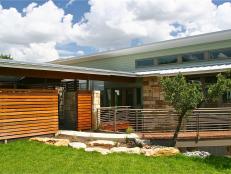How to Choose a Neighborhood
How can you choose the right community? Become a neighborhood detective. Figure out what you're looking for, do research and find the perfect neighborhood.

If houses are like spouses, a neighborhood is like the extended family. But while you can have a good marriage and still dread holidays with the in-laws, you'll never love a house if you don't like your neighborhood.
How can you choose the right community? Become a neighborhood detective. Figure out what you're looking for, do research and find a neighborhood that fits your description. You don't even have to wear a trench coat -- but it probably wouldn't hurt.
Step 1: Profile Your Perfect Neighborhood

©iStockphoto.com/jorgeantonio
Before you start scrutinizing neighborhoods, turn the magnifying glass back on yourself.
Think about what you're really looking for in a new neighborhood. Remember, you'll probably have to make compromises, so put the "must-haves" at the top and the "would- like-to-haves" at the bottom. Not sure what fits your lifestyle? Here's a list of 12 types of neighborhoods to get you started.
Here are some things to consider:
Do you have children or are you planning to have children anytime soon? Parents know that the first thing to do when looking at a neighborhood is to research the school system. Even if you're single, living in an area with a much sought-after school system raises your property value. If you have kids, you'll also want to live close to parks and community centers.
What type of home do you want? Are you interested in a single-family home or an apartment, townhouse or co-op? Read more about the different types of homes.
How far are you willing to commute? Do you plan to drive, walk or take mass transit to work? Do you have a car or would you be willing to get one?
Do you want to be in a historic neighborhood or a new development? Historic neighborhoods have tons of character, but often require lots of repair work and are governed by community associations with strict standards. Newer developments have more modern features, but are typically far from the city center. Read more about the different types of architecture styles.
What is your current community lacking? If you're currently landlocked, but have always wanted to live on the waterfront, put that at the top of your list. If you're a coffee junkie, having a Starbucks down the street may be a dream come true.
Do you want to be able to go places on foot? Would you like to be within walking distance of shops, restaurants and bars? Or would you be willing to drive to nearby businesses?
Think about what you don't want in a neighborhood, too. If you can't stand late-night noise, you'll probably want to steer clear of the college area or an area with a lively bar scene.
Step 2: Zero In on the Area

Cameron Davidson / Getty Images
If you're moving within the same city, you may already know the various neighborhoods. Choose the ones that best match your list of wants. If you're moving to a new city, you'll have to do more research. Start by picking a part of town to search in. For instance, if your job is on the west side of town, start there. In a really large city, narrow it down to a few-block radius, say, SoHo in New York City. This will make your search more focused.
Step 3: Get the Suspects
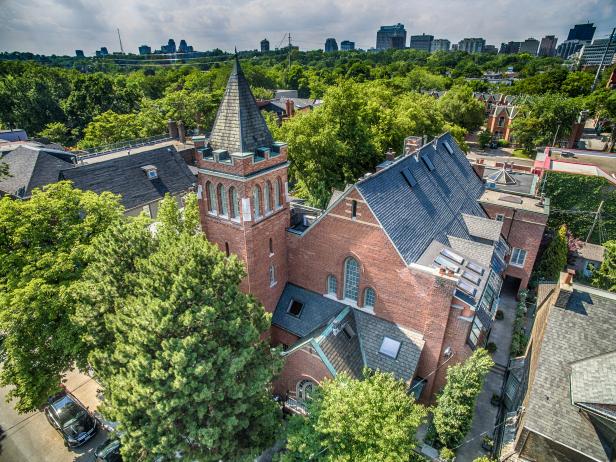
Johnston & Daniel, a member of Luxury Portfolio International
With your area of the city in mind, start digging up information. Find interesting neighborhoods online, ask local real estate agents for recommendations and compile all the background information you can, including:
School information: Look into the local public and private elementary, junior and high schools, as well as daycare programs.
Crime statistics: Most real estate sites have statistics that tell you how the zip code's crime rates measure up to the national average. If you want specifics, call the local police station.
Parks and recreation: How far is it to the closest park or recreation center?
Neighborhood associations: Does the community you're looking at have one, and, if so, are there lawn or construction restrictions? Is there a yearly fee?
Tourist attractions: Get a guidebook or check out the convention and tourism bureau's Web site to see all the city has to offer.
Step 4: Find the Clues
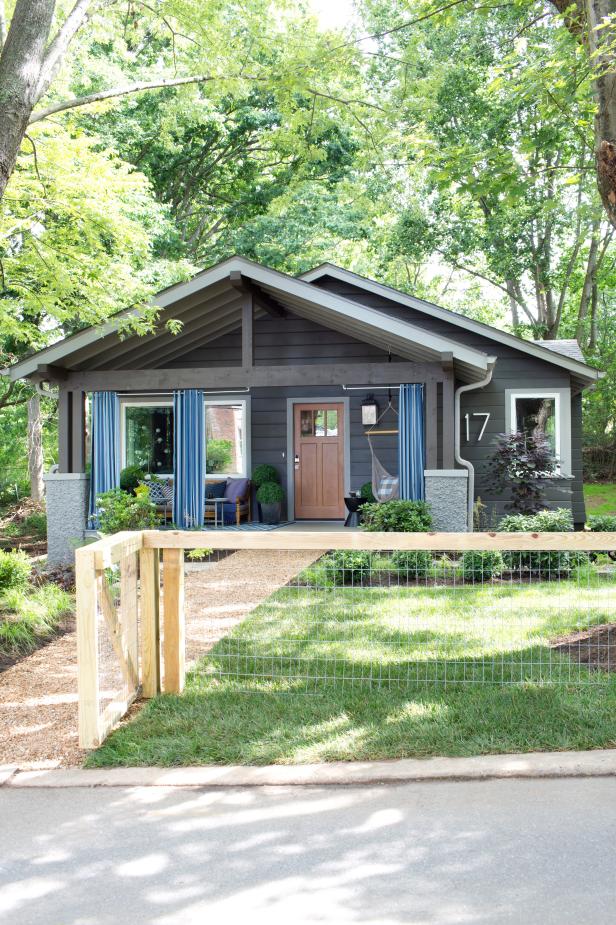
Sarah Dorio
Once you've done the background research, visit neighborhoods that made the preliminary grade in person. There's no better way to paint a real picture of life in the neighborhood. Use your senses to get a complete picture of the prospective community.
Sights:
Remember your first impression. What do you notice first about the neighborhood? Do the streets have curb appeal? Are the houses well-maintained? Do the shops and restaurants look hip and inviting? You'll want to feel good about where you call home, and impress buyers when you're ready to move on.
Visualize yourself in the neighborhood. Think of your daily routine. If you can't live without a morning latte, is there a coffee shop nearby? Where will you walk your dog or go jogging? You'll enjoy the neighborhood more if it's easy to do what you like.
Observe the neighborhood at different times of the day. Driving through will help you get a snapshot of life in the community -- good and bad. Do the roads turn into a parking lot after school or during rush hour? Are people using grills or decks in the evening? Are neighbors and kids socializing or do people keep to themselves? Are the streets well-lit at night? These visual clues can help you decide if you'll fit in.
Make sure the local schools make the grade. Even if you don't have kids, pay a visit to the nearby schools. High ratings are great, but seeing the buildings is much more telling. It will be easier to sell your house later if the schools are nice.
Look for warning signs. Be on the lookout for signs that the neighborhood is in trouble. Do you see abandoned buildings or vandalism? Are there a lot of "For Sale" signs or rentals? If the community goes downhill, so does your house's value.
Sounds:
Stop and listen. Bird and nature sounds are generally pleasant, but what about noise from the highway, airport, hospital, train tracks or nearby clubs and bars? It's not very relaxing to listen to trains screech by during your morning coffee -- especially not every morning.
Talk to your future neighbors. Ask how they like the area, and get the dirt on anything they don't like about the place. What do they want to change? What's their favorite place to hang out? If they're rude to you, they probably wouldn't be good neighbors anyway.
Talk to more people. You'll get the best information from regular people who aren't trying to make a sale. (Read: not your real estate agent.) Hit up your waiter for information when you're checking out the local food, or ask a gas station attendant to spill what they know about your chosen neighborhood.
Smells:
Specifically, are there any? You can't experience unpleasant smells on the Internet and they're not advertised in tourism brochures, but they can certainly affect your decision to live in an area. Take a big whiff of the air, and ask around if you smell any fishy (or just bad) odors.
Taste:
No, I'm not asking you to lick your prospective home's mailbox. But ask yourself if the neighborhood matches your taste in a living environment -- and if it meets your criteria. Just because it's a nice neighborhood doesn't mean it's the one for you. If the neighborhood meets your list but still feels wrong, search out another area. Trust your gut feeling -- after all, you're the one who has to live there.
Step 5: Close the Case

You've chosen your neighborhood. Now for the hard part: finding a house you love. Luckily, you've narrowed it down to a few streets. Now, make sure to:
Find out how much house you can afford. The amount of money a lender offers you is often more than you can truly afford to pay. Use FrontDoor's handy mortgage calculator to add all your current debts and see how much you can afford. You don't want to be stuck eating ramen noodles for the next 15 to 30 years.
Compare your loan options. Ask yourself these basic questions to find out what mortgage is right for you. Decide between fixed and adjustable rate mortgages by using an online tool to see which loan term is best for you.
Draw up your vision of home. It worked for your neighborhood -- now think about what you want in a home. Write your own vision of home and stick to it while you're house hunting.







